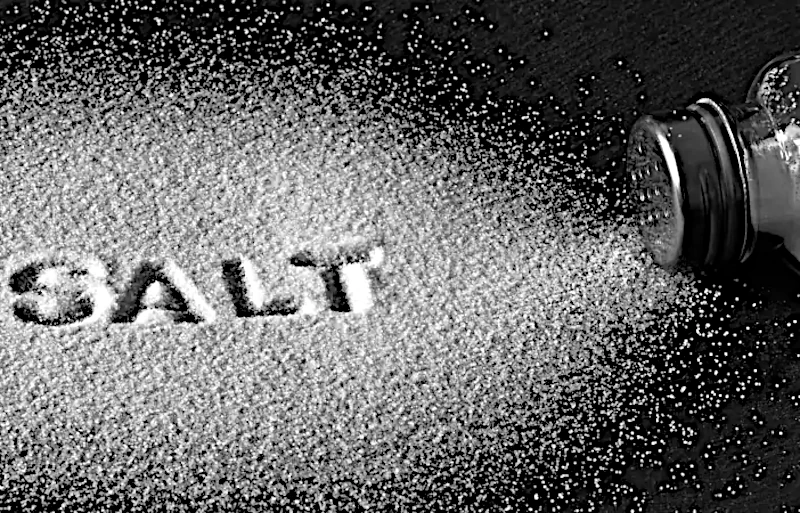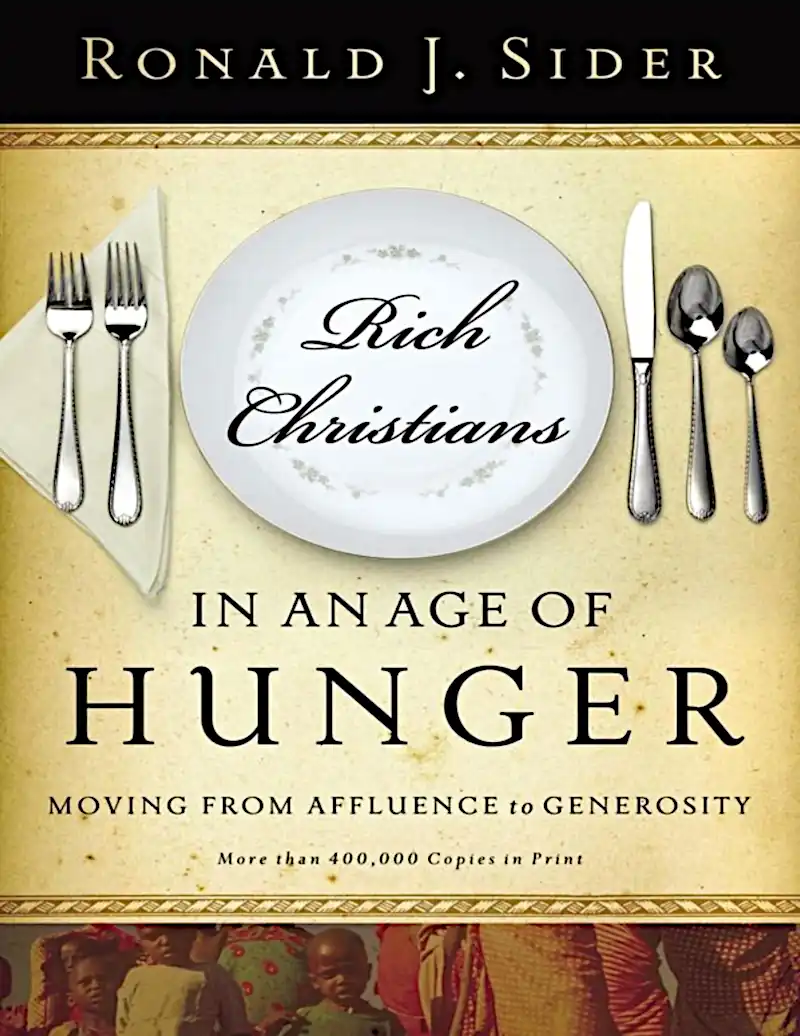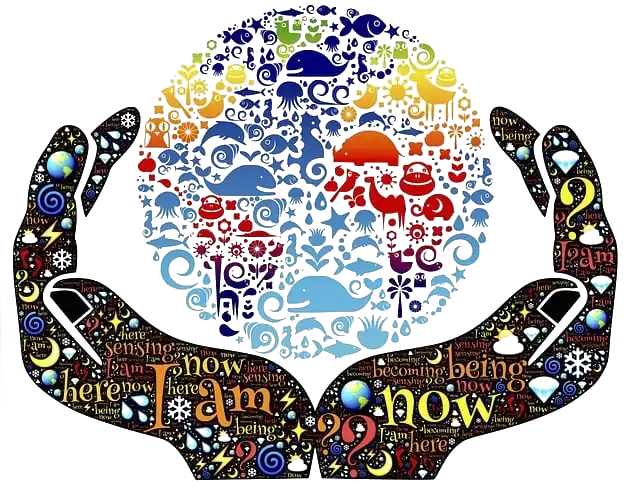Out Of The Salt Shaker

“It’s not our job. The Lord will come and fix this broken planet.” This anthem of defeat has crippled the Church. May she find grace to rise up from her state of disgrace and apathy to fulfil her role as the salt and light of this planet!
Across the tapestry of human society, dark threads of injustice intertwine with the bright strands of progress. Poverty, inequality, discrimination, and violence weave patterns of suffering that stain the very fabric of our existence.
Poverty, like a gaping hole in the fabric, reveals the vulnerability of millions. Hunger gnaws at it. Shelters crumble. Opportunities disappear into a chasm of economic disparity. On the other hand, wealth is increasingly getting concentrated in the hands of a few. The gap between the haves and have nots is widening by the day. Those who do not understand the causes of poverty blame the poor for not working hard enough or for not having enough faith.
Austerity is out of fashion. The shameless flaunting of wealth is praised. The illegal practice of demanding or offering dowry is tolerated in the name of tradition although hundreds of women have suffered and died on account of this. Christians, too, have not been immune to these influences. Silence is complicity.
Discrimination, another corrosive thread, darkens the tapestry with prejudice and bigotry. Caste-based discrimination, along with its notions of hierarchy and purity, plagues every Indian community at home or abroad. Colourism makes it worse. Race, gender, religion, ethnicity, colour, disability – these arbitrary lines, too, become instruments of exclusion and oppression.
Violence, a jagged tear in the fabric, leaves scars both physical and emotional. War, domestic abuse, rape, human trafficking, and societal unrest inflict widespread pain and shatter communities. Instead of calling for peace and reconciliation, Christians have become cheerleaders who celebrate revenge, military occupation and genocide! Has the “salt of the earth” lost its saltiness?
Environmental degradation, a growing rip in the fabric, threatens the very foundation of our existence. Deforestation, pollution, over-exploitation of natural resources, and climate change cast a shadow over the future, jeopardizing life.
Why do Bible-believing Christians ignore these social evils and injustice? Why do they act as if they aren’t supposed to take action? “The Lord will come and fix this broken planet,” many say. This anthem of defeat has crippled the Church. She is no hurry to cover up her apathy.
Being Salt And Light
Jesus taught his disciples, “You are the light of the world. … let your light shine before men, so that they may see your good works and give glory to your Father in heaven.”2 He sought to convey a sense of optimism regarding the growing influence of the Kingdom of God on this world.
“The kingdom of heaven is like leaven that a woman took and hid in three measures of flour, till it was all leavened.”3
The world will get better! It will be transformed from within due to the all-pervasive work of the Gospel. Why do some Christians believe that the world will keep getting worse?
According to Jesus, the world will get better due to the all-pervasive work of the Gospel. Why do some Christians believe that the world will keep getting worse?
The Good News To The Poor
Christians, called to embrace love and compassion, cannot turn a blind eye to social evils. Their faith must compel them to mend society’s torn fabric, pursue justice, and advocate for the marginalized.
The teachings of Jesus, who identified with the poor and preached radical redistribution of wealth, motivated several churches and Christian NGOs worldwide to fight against poverty. A church that is unmindful of the apostolic injunction – “remember the poor”4 – is unworthy to preach her Master’s Gospel, which is essentially the “good news to the poor”.

As Christians, we are quick to dole out charity in order to silence our conscience. We do not feel the need to revise our own standard of living in the context of the appalling poverty that surrounds us. It is sad to note that churches and NGOs in the Majority World include just enough activities in their annual schedule of programs to show that they are doing something for the poor.
In his essay in the book Economic Wisdom For Churches, Zachary Ritvalsky emphasizes the importance of loving the poor instead of using them as objects to augument our profile.
How we love the poor is a clear indicator of how we understand God’s love for us. Too often, in misunderstanding God’s love we make the poor the object of our charity, the front cover of our programs, the focus of our grant requests, or the target audience to fill our seats. We make them listen to sermons before we feed them, ask them to join the church before we clothe them. We use them as objects instead of people loved through us. God is love, and by being endowed in his image, as they are, we ought to love them for who they are in God’s kingdom here on earth. It is important to do this because Jesus loved them enough to die on the cross for them.5
Volunteering and charity, while essential, are merely patches over the hole; true justice demands a complete reweaving of the economic landscape. Christians must address the systemic causes of poverty through advocacy for equitable wages, adequate compensation to people displaced by “development” projects, equitable access to resources, and responsible economic policies.
In several mineral-rich regions of the world, poor forest-dwellers were driven out to make way for the mining and timber lobbies. In India’s Manipur, the Kuki tribespeople were massacred or driven out recently. There were several reasons behind that pogrom—ethnic rivalry, religious extremism, and economic interests, says Citizens For Justice and Peace.6 The livelihood of 4500 fisherfolk families was affected by the “development project” called Vizhinjam deep sea port on the south-western tip of India, says noted historian Ramachandra Guha citing the study of an expert group.7 Christians must speak up for the oppressed and oppose skewed crony capitalistic projects, without resorting to violence.8
Good News To All—Without Discrimination
Guided by Christ’s command, “Love thy neighbour as thyself”, Christians must actively dismantle discriminatory structures. Challenging prejudiced narratives, promoting fair representation, and fighting for equal rights are all threads in the intricate tapestry of building an inclusive society.
For centuries, the Indian society has been plagued by caste system and ‘untouchability’. When Indians moved to the USA, they took these evils with them. Pandita Ramabai, a Brahmin widow who bore the burnt of caste-based discrimination, wrote her book The High Caste Hindu Woman in 1887 to create awareness about this evil system among Americans who were being carried away by rave reviews about eastern religions.
60 members of the Dalit community in Tamil Nadu defied an unwritten ban imposed by upper castes in Rajavur village on Sunday. The community members, breaking tradition, walked the ‘Kambala Naicken Street’ in Madathukulam taluk of Tiruppur district wearing footwear, marking a… pic.twitter.com/NACfTFokno
— The Observer Post (@TheObserverPost) December 26, 2023
It perhaps took more than a century for caste-based discrimination to be recognized as a social evil in the USA. Americans, in the past few decades, were curious to know more about it.9 Indian students and employees from “low” castes began to be outspoken against the discrimination they faced at the hands of fellow Indians who claimed to be from “higher” castes. They gave rise to a movement that demanded a law against such discrimination. The press began to take note.10 In January 2020, California State University outlawed discrimination based on caste. In February 2023, activists succeeded in getting the city of Seattle to enact a similar law.11.
When will the Indian Church purge the evils of caste and color from among their midst? When will caste or ethnicity cease to be a factor while families choose a bride or a groom? When will Christian matrimonial advertisements stop using the filters of caste, skin color, and wealth?12
Non-Violence and Love
The Christian community in any country is generally known as a peaceful community. Our stand for non-violence and non-resistance must be backed up a heart that wishes the very best for those who persecute us or take advantage of us. Jesus said,
“You have heard that it was said, An eye for an eye and a tooth for a tooth. But I tell you, don’t resist an evildoer. On the contrary, if anyone slaps you on your right cheek, turn the other to him also.”
Inspired by such teachings of non-violence and peace, Christians are to be agents of reconciliation. Promoting conflict resolution, advocating for disarmament, and supporting victims of violence are all crucial steps in weaving a society free from fear and bloodshed.
Christians who claim to honor Christ’s teachings against retaliation and revenge should not support violence and retribution—whether it be the genocide sponsored by a state, as in Gaza, or a civil war, as in Tigray. The extreme violence with which Ethiopia crushed a regional rebellion is disturbing. And, to think that a devout Christian Prime Minister who won the Nobel Peace Prize presided over such human rights violations!
It is shameful and deplorable that Christians justified and glorified Israeli war crimes. How many of these Christians would be willing to worship with Palestinian Christians in Bethlehem who are trapped for life behind tall concrete walls that divide their land? Would you break bread with a Palestinian Christian family that is trying to save their ancestral property from bring grabbed by Israeli government?

Their case will be decided by an Israeli military court! Even when they know that they will be denied justice, these peaceful Christians refuse to hate Israelis. They carved their Christian principle of non-violence and love on a stone.
Creation Care

Goaded by the biblical mandate to care for creation, Christians must vigorously pursue environmental justice. Protecting natural resources, advocating for sustainable practices, raising awareness about ecological issues, and speaking up for the rights of indigenous people are threads in the urgent task of mending the planet.
Human Action, Divine Grace
However, addressing social evils is not merely a matter of individual actions or isolated initiatives. It demands a collective effort, a tapestry woven with the threads of collaboration and community. Christians can partner with other faith communities, civil society organizations, and government agencies to amplify their voices and broaden their impact. Collaborative advocacy, joint campaigns, and shared resources can strengthen their fight for justice.
Furthermore, Christians must acknowledge the limitations of human efforts. As far as a Christian is concerned, his hope does not rest on the might of his works but in the transforming power of God’s love. Prayer is an essential thread in the pursuit of justice. A Christian seeks divine guidance and strength through prayer. Only through a combination of human action and divine grace can the torn fabric of society truly be mended.
Conclusion
In conclusion, Christians, guided by their faith and empowered by love, have a sacred responsibility to engage in the battle against social evils. By addressing poverty, discrimination, violence, and environmental degradation, they weave justice and equity into the fabric of society. This pursuit requires individual commitment, collaborative action, and unwavering faith in the power of love to mend the torn fabric of our world. Like Joseph, who gathered small lots of grain to bring sustenance, let us gather our efforts and resources to stitch together a tapestry of hope, justice, and peace.